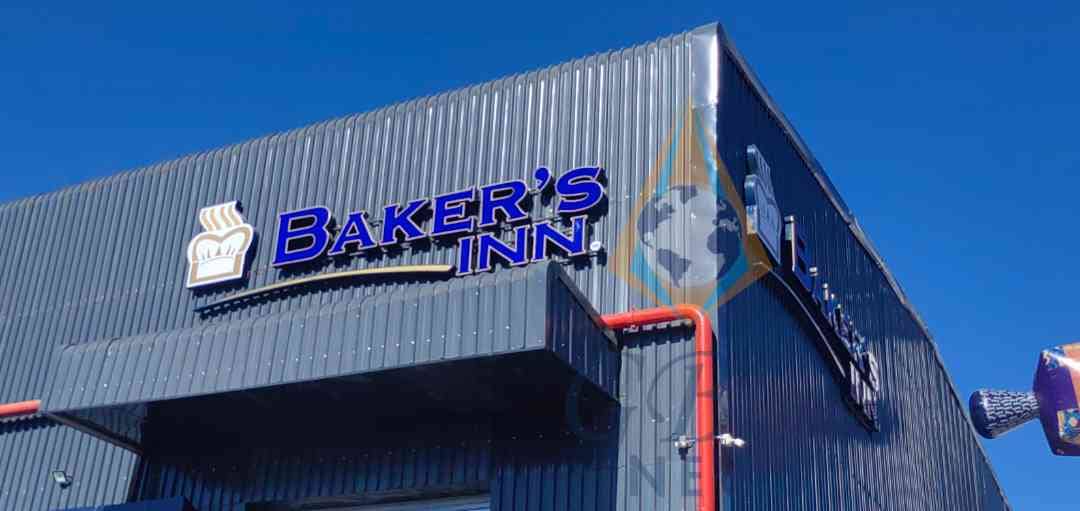Chantelle Bongubukhosi Ncube
Once the beating heart of Zimbabwe’s industrial sector, Bulawayo has witnessed a total decay of its manufacturing prowess over the past decades.
The decline in manufacturing is attributed to several factors which include, political drawbacks, mismanagement of the economy, obsolete machinery, property rights and in recent times incessant load shedding of electricity which has become a major hindrance to production costs.
Factories that once buzzed with activity have long been silent, casting a shadow over the city’s economic landscape.
At the height of the indegenisation, which was meant to promote local people, many white owned or foreign companies were seized by the authorities or shady deals were concluded which deprived owners of their companies.
Companies like, Zimbabwe Engineering Company, ZECO, G&D Shoes, Supersonic Wireless, Rubber Products and several others have since vanished from the map of Bulawayo.
However, Inscor Africa Group through its subsidiary, Bakers Inn, commissioned a new fully automated bread making plant yesterday in Bulawayo, sparking an excitement of the return of industry in the City.
This venture is being hailed as a potential turning point, offering a glimmer of hope for a long-awaited industrial revival of the City of Kings and Queens.
The City is commonly refereed to as, koNtuthu Ziyathunqa, belowing smoke that touches the sky because of its long lost manufacturing prowess.
The Bakers Inn state-of-the-art, fully automated facility, strategically located in Bulawayo’s industrial hub, is designed to produce thousands of loaves of bread daily with minimal human intervention.
This marks a significant milestone for both Baker’s Inn and the City, which has struggled with unemployment and economic stagnation since the decline of its manufacturing sector.
The automation of the new plant brings several advantages. First and foremost, the efficiency and consistency of production are set to increase dramatically.
Automated systems can operate around the clock without breaks, reducing downtime and maximizing output. This efficiency is crucial in maintaining competitive pricing and ensuring a steady supply of bread, which is a staple in many households.
Moreover, automation can lead to improved product quality. With precise control over the baking process, the new plant can maintain high standards consistently, reducing the likelihood of human error.
This consistency can enhance customer satisfaction and brand loyalty. The plant’s automation also signifies a step towards modernizing Zimbabwe’s industrial capabilities. By adopting advanced technology, Bulawayo can attract further investments, potentially sparking a broader industrial renaissance. The presence of such cutting-edge facilities can serve as a beacon, drawing in other businesses and industries that are looking to benefit from similar efficiencies.
Minister of State for Provincial Affairs and Devolution, Bulawayo Province, Hon. Judith Ncube was full of praise to the newly commissioned bread making plant.
“If you consider the huge investment that has been done by Inscor, in Bulawayo, automatically, it should create confidence to other investors…, this is a challange investors.”
However, the shift to a fully automated system is not without its drawbacks. One of the most significant concerns is the impact on employment.
Automation reduces the need for manual labor, a majority of Zimbabweans mainly operate in the informal sector without the necessary qualifications to qualify for jobs in automated industries and those who have degrees may not have them in that particular field meaning a majority of Bulawayo’s youths population will not reap the fruits of this new avenue. To that effect Hon. Minister Ncube had this to say,
“If you were able to tour the entire factory, you were convinced and you made some conclusions that indeed we need some graduates in here because of the technology that is inside, its an opportunity to our graduates.”
A business owner, who runs a company that supplies alternative energy to such companies as Bakers Inn had a different opinion.
“Technology is good for modernization, but is a disadvantage to employement creation. It is a fact that before this fully automated plant was commissioned, this company employed several people, but this is not the case now.” Said Dyson Phiri.
“I am not old guard at all, as a business person, I move with the times, I have witnessed that automation replaces the human element. This is a downside whether we like it or not.”
He went on to say that given a chance, comparisons should be made on how many people, especially youths from this City, would be employed had Inscor commissioned a semi-automated plant.
Since the youths of today are the ones whose future is being taken away by machines and computers, one, Ndabezinhle Siwela, was asked for a comment concerning the commissioning of this new fully automated bread making plant.
“True, we do need to advance with technology, but I am getting to realize that the disadvantages downstream cause unemployment. Look, I am a graduate in software designing myself, but I can’t find a job because many companies of my degree use robotics for manufacturing. Its really a disadvantage employment wise.” Said Ndabezinhle Siwela.
“As is, you said this plant produces 160 000 loaves per day, had this been a manual plant, loads of youths would have benefitted from Bulawayo.”
In conclusion, Zim GBC News applaud the commissioning of the new fully automated bread making plant in Bulawayo by Inscor Africa Group, we hope new development will ignite that spark for the industrial hub of the country to drive the machinery until iNtuthu Zithunqe again in the City of Kings and Queens, koNtonga Ziwelele, komfazi utshaya imbiza, koBulawayo.
Zim GBC News©2024


